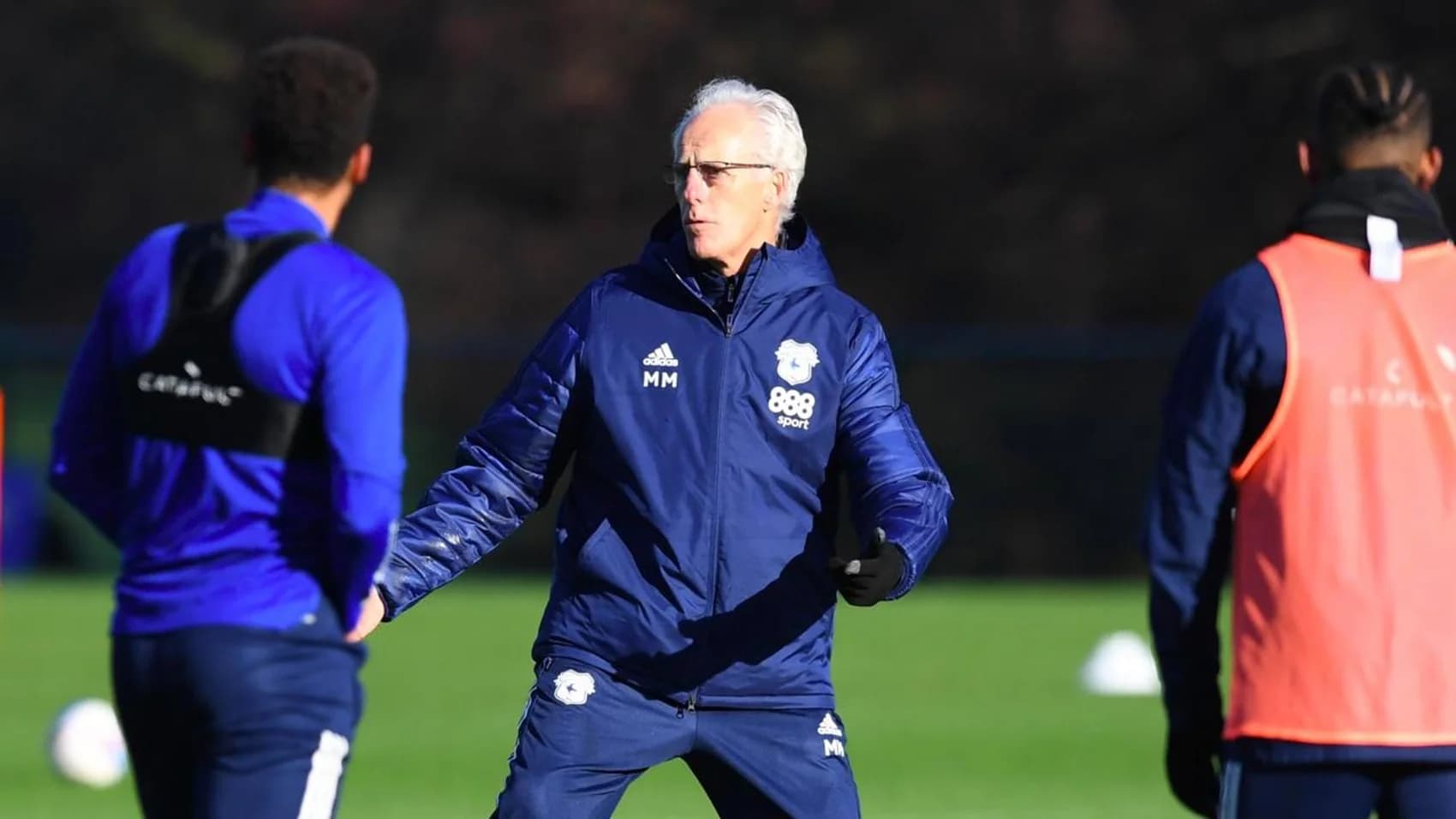Of all the strange revelations given to Cardiff City supporters groups last weekend in a meeting with chairman Mehmet Dalman, surely the least surprising was that owner Vincent Tan has a preference for “a direct style of football.”
Of course, he does. This is a man, lest we forget, who told the players when he met them back in 2016 to “shoot more”.
Providing secretly mined data previously unknown to club coaches and analysts throughout European football, the Malaysian billionaire said: “If you shoot 30 times you’ll get three goals, 40 times will be four goals, 50 times and you’ll get five goals.
“Have you seen ugly men walking around with a very beautiful wife? Well, that’s because they’ve asked 30, 40, 50 times before getting a yes.”
Presumably, Mick McCarthy must have got his wires crossed at some point because his last eight losing matches in charge of Cardiff City produced exactly one goal.
Have you ever seen an ugly football team walking around with five centre-backs looking for beautiful football? That’ll be the one managed by McCarthy.
With McCarthy’s bags packed by Tan after a brief phone call to his chairman post-match on Saturday, the Bluebirds are now looking for another manager.
He will be the eighth full-time appointment in the 10 years since Tan decided to get rid of Dave Jones in 2011.
What seems obvious to anyone who casts a glance at most of the successful Championship clubs during this decade is not that McCarthy was a footballing dinosaur. It is that Cardiff City is Jurassic Park.
The club are a throwback to pre-historic times when managers with forceful personalities roamed the footballing landscape, owing their status purely to the whims of individual owners or chairmen.
Big Ron. Big Jack. Big Mick. Appoint a manager. Let him dictate style, tactics, recruitment, everything. When it goes wrong sack him and bring in someone else.
Let the new man reverse the style, change the tactics, switch recruitment and generally move the giant tanker that is a modern football club in a completely different direction.
Cardiff have specialised in this approach, with a twist. They also add in a generational lurch for good measure.
So, Tan gets rid of old-school, experienced managers and replaces them with young thrusters. When they fail, he reverts to the old-timers.
Old school Scot Malky Mackay was replaced by wet-behind-the ears Ole Gunnar Solskjaer. He made way for safe-pair-of-hands Russell Slade. When those hands dropped it, in came another newbie in Paul Trollope.
That didn’t work, so the call went out to the grand-daddy of the old guard, Neil Warnock. Then, another rookie in Neil Harris. Then another greybeard in Big Mick. Old, new. In, out. Old, new. In, out.
There appears to be only one lever on Tan’s desk. It goes up or down. Forward or back. It does not move sideways.
This is not the way Tan runs his Berjaya Corporation with its myriad of businesses, each managed by specialists who run their companies in line with the overall corporate strategy.
No-one comes in, rips things up, and sets their own course out of personal preference. If you headed the Kenny Rogers Roasters franchise in Kuala Lumpur and woke up one morning with an idea to replace the chicken with tofu, you’d be dragged back to the corporate plan.
Cardiff City Football Club can confirm that First Team Manager Mick McCarthy and Assistant Manager Terry Connor have left the Club by mutual agreement and with immediate effect.
— Cardiff City FC (@CardiffCityFC) October 23, 2021
Former Cardiff players, coaches, media pundits, fans and anyone else with a passing interest in the club have been pointing out for years the lack of structure between the manager and the overseas owner.
Those clubs that have won promotion to the Premier League and managed to sustain success for some years – the likes of Brighton, Norwich, Wolves, Burnley and Swansea City – all have either a director of football or someone else in the club who maintains consistency and identity.
Managerial appointments, player recruitment, the playing style – it is all subject to a visible and identifiable plan.
At Cardiff, Tan is the plan. With some advice and input from investment banker Dalman or businessman and chief executive Ken Choo.
It’s a retro world, harking back to the days when the most successful businessman in town ran the local football club, as chairman, and the fans were meant to be grateful for his “expertise”.
It’s made worse by the fact that Tan’s own interest in the club appears to be waning. Even before the travel restrictions imposed by the pandemic, his visits to Wales had become infrequent and the financial taps that once ran freely appear to be drying up.
Relegation to League One would be a disaster for Cardiff, for the fans and for the city. It would also seriously further devalue Tan’s investment in the club at a stroke.
But Sunderland, Sheffield Wednesday and Bolton – big clubs in previous years – have all found that living in the past offers no entitlement to the future.






